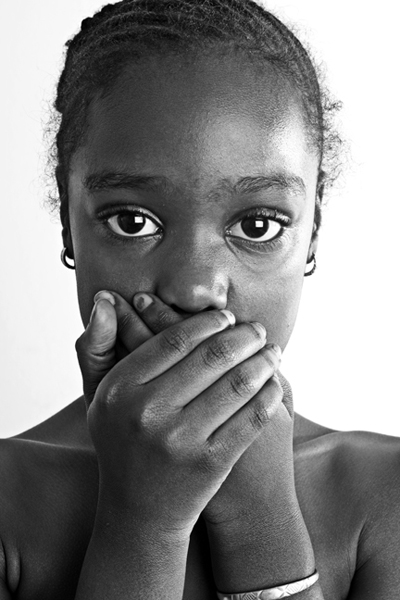Serendip is an independent site partnering with faculty at multiple colleges and universities around the world. Happy exploring!
Silence

Two Silences
Sometimes people talk all the time in class, while still staying silent.

Class discussion is about sharing thoughts and ideas, but sometimes it is also about sharing yourself. Now that we are already three weeks into the 360 experience, it is becoming incredibly clear that more than one kind of dialogue occurs in our classrooms. This is true of many discussion-based class settings, but the intimacy and intensity of our cluster of courses makes these different kinds of sharing even more apparent. What I am still not sure of – but am very interested in exploring – is to what extent these two modes of discussion are intertwined, and whether one is even possible to do one without the other. Dissecting and analyzing readings or books on their own is important (and is what I am usually referring to when I talk about class discussion). But telling personal anecdotes, and relating readings, theory, and overarching concepts to our own lived experiences gives a window into how we relate the subject matter to who we are.

A Fear of Silence?
I have been thinking a lot about how I can incorporate silence into my daily routine. I think if I can be more comfortable in silence I will be able to experience more fully, rather than distancing myself from an experience by constantly reflecting, interpreting and assigning it language.

23Sept2012S3: What gets left at the door
I've always thought a lot about "what gets left at the door" when entering (or leaving) a classroom that fosters growth, enrichment, education. To frame question in a different way, a way that reveals how I believe this topic is pertinent to our class theme, I’ve thought a lot about what topics and at what times we should remain silent in the classroom. This post is to express my thoughts on this in relation to our experience together this past week.
As I think we all know, a type of objectivity, lack of emotion and personal investment, and reason is valued in the classroom. The reasons are easy to point out: doing so allows us to remain concentrated on the subject matter at hand. What’s more, this allows the classroom a freedom to discuss and debate without the worry that sentimental opinions and feelings will hinder the intellectual pursuit. Phrases and thoughts like “Leave your baggage at the door, otherwise, you won’t contribute to the classroom appropriately” or “Don’t speak about how you’re sad or about your personal life, that has nothing to do with our readings”, to the “Well, shit, now I definitely can’t say anything; I’m just going to hurt your feelings” all hopefully elucidate what I mean. Academia believes that emotions and our personal self get in the way of intellectual pursuit.

waiting to speak?
Looking back and rereading my initial essay, silence has since taken on a bigger definition, a wider range of activities and has also become a more comfortable topic for me. When I was writing my first essay, my thoughts of silence and being silenced all strung back to events of feeling silenced or silencing because it would be more convenient for others and me to not speak up. In my history of silence, it has been more convenient for me to stay silent because I felt I was wasting my breath and thoughts on attempts to comment on people’s comments. I don’t think I was trying to “correct them” but I guess I felt like it could sound like it. But with that, I didn’t feel like I was being listened to, I felt like they would be waiting for their turn to speak.

Paper 2
As I re-read the prompt for this paper (which was about a thousand times), I still have trouble understanding it and even coming up with an answer. Ever since we started class, I have been having trouble visualizing silence. I understand it to be the inability to speak/express yourself, either because you do not want to or because someone/something won’t let you. I read almost all the papers that are already posted to see if I can get an idea of what to write about, or what the question is asking. After reading the papers, I still do not have an answer, which (with a little help from Sarah) led me to conclude that the openness/vagueness of the question is silencing me.
I guess I can relate this predicament to my academic life here at Bryn Mawr. A lot of the times, if not all the time, when there is an assignment, it takes me a while to completely comprehend what is being asked. This makes me think of our last class when we spoke about the different levels of comprehension and “education” in all of my classes. If there were a time where I am silenced in a classroom, it would definitely be when I am being asked to reason or think about something that is fairly foreign to me.

Silence, Air, and Paradoxes
Although I want to respond to my first web event on active listening, I don’t think I will be able to. I’ve learned so much about communication and how communication is affected by privilege since that reflection that I have to move in another direction.
This past week in the 360 has been an emotionally charged one – challenging, frustrating, belief shaking. After Tuesday’s class, I felt so confused about my voice, about my place in the world and my privilege that I walked out of class in a daze, and ended up screaming in the woods with Johanna. After Thursday’s class on academia, rationality, and coherence, I was flooded with doubts about how I speak and write. My classes have never left me feeling so vulnerable and uncertain about everything – so I’m in a place of utter confusion.
Web Event 2: Representing Uninhibited
One issue I’ve really been struggling with in class is the question of “who is allowed to represent who?” I contemplated this in my post after reading the article by Dimitriadis in our class on Silence, and during our discussions of Anna Deveare Smith’s acting in our class on Voice. In jhunter’s reply to my post, she raised some important points about who has the authority to speak for whom, and how characteristics beyond race and culture may impact this authority. I want to push back on this idea though, and demonstrate why I believe race and culture alone are such important factors. I want to display this by attempting to represent Uninhibited’s paper, which she titled “I Choose to be Silent You Don’t Make Me Silent”.
Uninhibited and I grew up in the same town (although she was born in the Dominican Republic). Though we have never actually discussed how much money our father’s make, I believe we are of a somewhat similar socioeconomic status, at least in simple terms of finances and what is deemed “working class” in America. Both of us are currently being raised by a single father and both of us have experienced the death of our mother’s. We met in December of 2008 when we were chosen to be members of Bryn Mawr Posse 9. We are both interested in social justice issues. We are close friends. I believe it is safe to say we have a good amount in common.

Silence is Tradition Voice is Treason

How can you grow as an individual in a family that has defined your role even before you begin to walk? How do you strip yourself of inhibitions because of whom you are told you are or need to be in order to keep the family together? What do you do when your responsibility to the world, to your family, and to yourself stand in opposition, ready to battle for the crown? My life since coming to the United States has been a constant push and pull between reaching for new opportunities and holding on to traditions. It has been a constant imagining and reimagining of how I can use voice and silence to define who I am in relation to others.

Questions, questions...
You'll find here the photos I took during our visit to Eastern State y'day. Very evocative…and troubling.
So much to think through (for me as a Quaker, especially....), about a vision gone wrong in so many ways…
I didn't take any photos during the mural tour, though--in part because I found it hard to see, and assumed I could find better images on-line than I could take from the trolley. But there's lots more I'd like to discuss about that whole experience--from what it means to ride around on a trolley through poor neighborhoods (while being urged to "wave @ everyone!"); through getting off the trolley and viewing murals, while the neighbors are making music across the street; to what it really means to "make art that represents a community."
I'm hoping that Jody, Sarah and Uninhibited will be able tell us something about the process that went into making the mural about women's education, which they helped to create in the first 360°. I attended one of the early concepting sessions; saw Jody, Sarah and Jomaira and Sharaai posed @ work on the front page of the Alumnae Bulletin...



